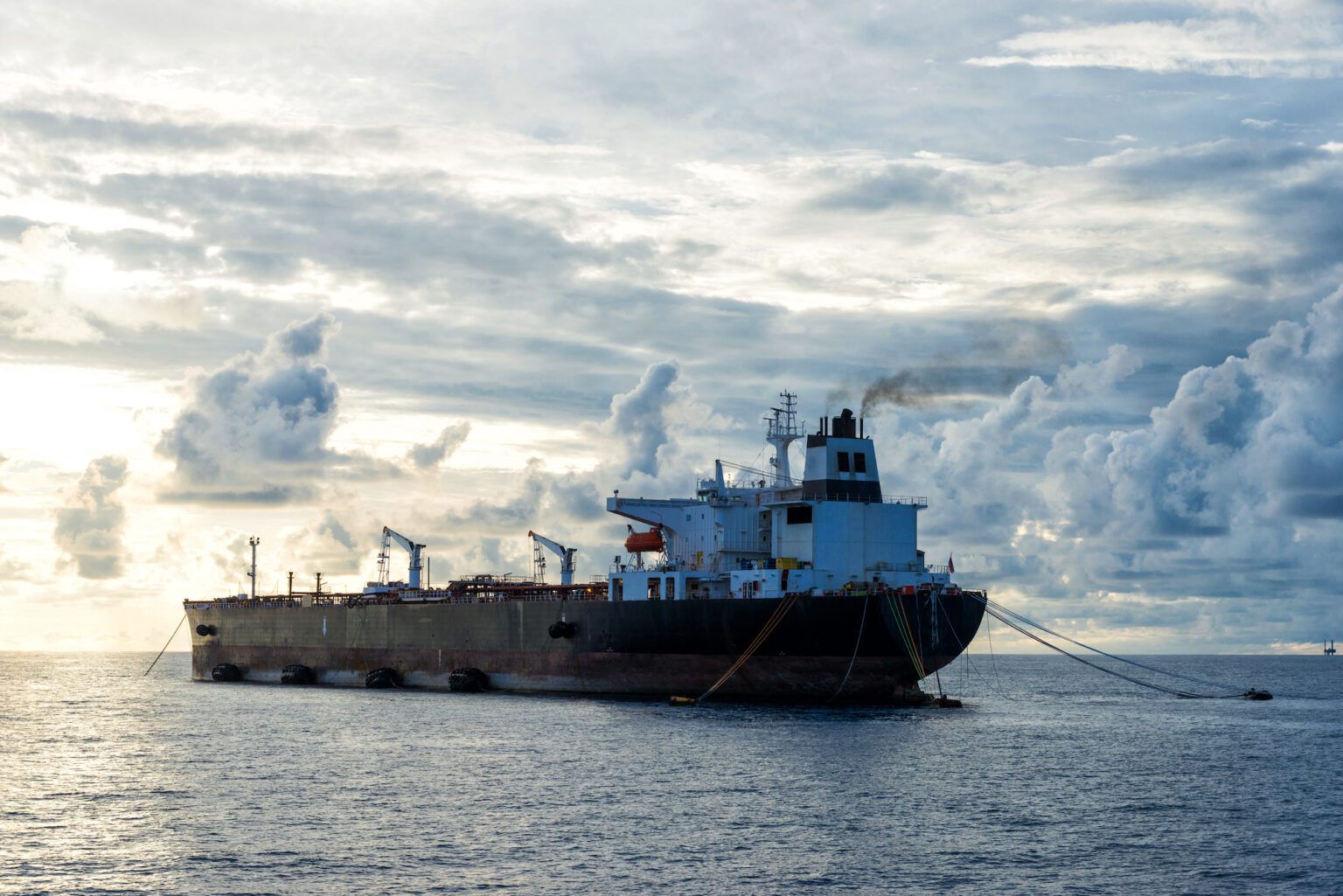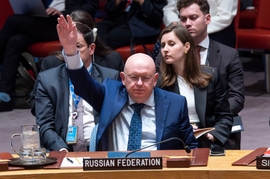The United States has imposed sanctions against several companies and vessels, accusing them of transporting Russian oil at prices exceeding the G7-imposed limit.
The US State Department of the Treasury’s Office of Foreign Assets Control (OFAC) announced the sanctions targeting three United Arab Emirates (UAE)-based companies and their associated vessels, alleging their involvement in exporting Russian oil at prices above the $60 per barrel cap.
The companies facing sanctions are Kazan Shipping Incorporated, Progress Shipping Company Limited, and Gallion Navigation Incorporated, all based in the UAE. The vessels subjected to sanctions include Kazan, Ligovsky Prospekt, and NS Century, each registered under the Liberian flag.
The statement also revealed that the sanctioned vessels, while transporting Russian oil, utilized the services of American specialists, adding the complexity to the situation.
The price cap for Russian sea-borne oil of $60 per barrel came into force last year in a bid to both deprive Moscow of a major revenue stream amid its invasion of Ukraine and curb surging global energy prices.
Under the deal, the European Union (EU) and other G7 countries, as well as Australia, ban banks from financing the purchase and sale of Russian oil, insurance companies from insuring shipments, and ports from unloading oil transported by tankers, if traded at a higher price than that fixed by the EU.
“Shipping companies and vessels participating in the Russian oil trade while using Price Cap Coalition service providers should fully understand that we will hold them accountable for compliance,” said Deputy Secretary of the Treasury Wally Adeyemo.
“We are committed to maintaining market stability in spite of Russia’s war against Ukraine, while cutting into the profits the Kremlin is using to fund its illegal war and remaining unyielding in our pursuit of those facilitating evasion of the price cap,” Adeyemo added.
Despite these efforts, high global oil prices and Russia's utilization of its shadow tanker fleet have contributed to many transactions surpassing the price cap.
Treasury advisers emphasized that while global oil prices have reached approximately $85 per barrel in recent months, driven by production cuts and a lack of spare global production capacity, the coalition remains committed to enforcing the price cap. Measures to tighten enforcement are under consideration to ensure the cap's effectiveness in limiting Kremlin oil revenues.
A recent report from the International Energy Agency (IEA) revealed a significant drop in Russian oil and petroleum product exports in October, falling by 70,000 barrels per day to 7.5 million barrels per day.
Energy-rich Russia has been bombarded with Western sanctions over what Moscow calls a “special military operation” in Ukraine. Sanctions have been driving Russia’s crude oil trade into the shadows, with many oil importers avoiding dealing with the country’s energy companies.
Despite the Western drastic measures to wind down imports of Russian oil, the world's second-largest oil exporter that holds 80 billion barrels of proven oil reserves or 4.8 percent of the world’s total oil reserves, still has plenty of buyers.







 President Ilham Aliyev shed light on the evolving contours of the peace process with Armenia during an international conference in Baku this week. ...
President Ilham Aliyev shed light on the evolving contours of the peace process with Armenia during an international conference in Baku this week. ...
 Azerbaijan and Armenia started the process of demarcation of their border on Tuesday, with the installation of the first border markers based on ge...
Azerbaijan and Armenia started the process of demarcation of their border on Tuesday, with the installation of the first border markers based on ge...
 President Aliyev emphasized the critical role of the North-South Transport Corridor in fostering transport cooperation between Azerbaijan and Russi...
President Aliyev emphasized the critical role of the North-South Transport Corridor in fostering transport cooperation between Azerbaijan and Russi...
 Iran and Pakistan have signed eight cooperation documents in various fields, and agreed to strengthen ties to fight terrorism in the region.
Iran and Pakistan have signed eight cooperation documents in various fields, and agreed to strengthen ties to fight terrorism in the region.
 As the conflict between Ukraine and Russia escalates, the strategic importance of Kharkiv, Ukraine's second-largest city, has come sharply into focus.
As the conflict between Ukraine and Russia escalates, the strategic importance of Kharkiv, Ukraine's second-largest city, has come sharply into focus.
 Iranian President Ebrahim Raisi expressed Tehran’s readiness to participate in significant development projects in Sri Lanka during the inauguratio...
Iranian President Ebrahim Raisi expressed Tehran’s readiness to participate in significant development projects in Sri Lanka during the inauguratio...



